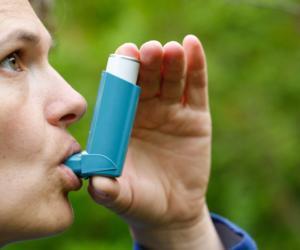“What are the best ways to deal with asthma in a child?”
My son is 8 years old and has been suffering from asthma. It's worse particularly during the fall and the winter season and it makes it very difficult to handle frequent asthma attacks. Are there easier ways to improve his body resistance especially during these seasons?
3 Answers
Dear concerned mom,
Asthma is a serious condition and while there are things you can consider doing to help with your child's immune system during the winter months - plenty of rest and sleep, good balanced nutrition, extra multi-vitamin and vit. C and vit. D, practice good hand hygiene - the greatest tool for success you have at your disposal is a good asthma action plan. Allergists are very good at handling asthma - be it allergic or not - so having your child evaluated and creating a good asthma action plan with a board certified allergist will be of paramount importance. Also remember that asthma is a risk factor for complications from the influenza virus so getting the flu shots (by all family members) is a must as well.
Hope that helps.
Sincerely,
Monika Korff, MD
Asthma is a serious condition and while there are things you can consider doing to help with your child's immune system during the winter months - plenty of rest and sleep, good balanced nutrition, extra multi-vitamin and vit. C and vit. D, practice good hand hygiene - the greatest tool for success you have at your disposal is a good asthma action plan. Allergists are very good at handling asthma - be it allergic or not - so having your child evaluated and creating a good asthma action plan with a board certified allergist will be of paramount importance. Also remember that asthma is a risk factor for complications from the influenza virus so getting the flu shots (by all family members) is a must as well.
Hope that helps.
Sincerely,
Monika Korff, MD
Hi,
I'm sorry you're having so much difficulty with your son and his asthma. Your story is not unique; every year, I see so many children struggle with asthma during the school year. Viral infections, air pollution, and allergies are among the most common triggers for asthma attacks. This can lead to missed days of school as well as missed activities, including sports and social events for the child as well as missed work days for the parents.
Unfortunately, there is no one size fits all solution for children with this problem. I would definitely urge you to seek out a pediatric allergist in your community who can help you identify and minimize the most prominent triggers for your child's asthma and partner with you to put together a treatment plan that will keep him as healthy as possible. The majority of parents I work with are interested in reducing the burden of asthma using the least amount of the safest medications possible. Best wishes on your journey to achieve and maintain the best possible health for your son!
I'm sorry you're having so much difficulty with your son and his asthma. Your story is not unique; every year, I see so many children struggle with asthma during the school year. Viral infections, air pollution, and allergies are among the most common triggers for asthma attacks. This can lead to missed days of school as well as missed activities, including sports and social events for the child as well as missed work days for the parents.
Unfortunately, there is no one size fits all solution for children with this problem. I would definitely urge you to seek out a pediatric allergist in your community who can help you identify and minimize the most prominent triggers for your child's asthma and partner with you to put together a treatment plan that will keep him as healthy as possible. The majority of parents I work with are interested in reducing the burden of asthma using the least amount of the safest medications possible. Best wishes on your journey to achieve and maintain the best possible health for your son!
Any child who has asthma needs a quick-relief medicine to treat the noisy part of the disease the coughing, wheezing and shortness of breath that occur with symptoms or an asthma attack. This medicine (typically an inhaler) should be with the child at all times for use at the first sign of symptoms.Avoiding triggers, using medications, and keeping an eye on daily asthma symptoms are the ways to control asthma in children of all ages. Children with asthma should always be kept away from all sources of smoke. Proper use of medication is the basis of good asthma control. Make sure your child's caregiver and school teacher has a copy of the Asthma Action Plan, so they will know how to treat the child's symptoms if she should have an asthma attack away from home.Infants and toddlers may use some of the same type of asthma drugs as older children and adults. Inhaled steroids may be key to managing infants with chronic asthma or wheezing. However, the medications are given differently to children under 4 years of age (such as with an asthma nebulizer and mask), and with lower daily doses. A low-dose of an inhaled steroid, cromolyn, or Singulair is the next step up.Depending on your young child's age, you may use inhaled asthma drugs or liquid medications delivered with an asthma nebulizer. A nebulizer delivers asthma medications by changing them from a liquid to a mist. As a mist, your child will breathe the medications through a face mask. These breathing treatments usually take about 10-15 minutes and may be given up to four times a day.






